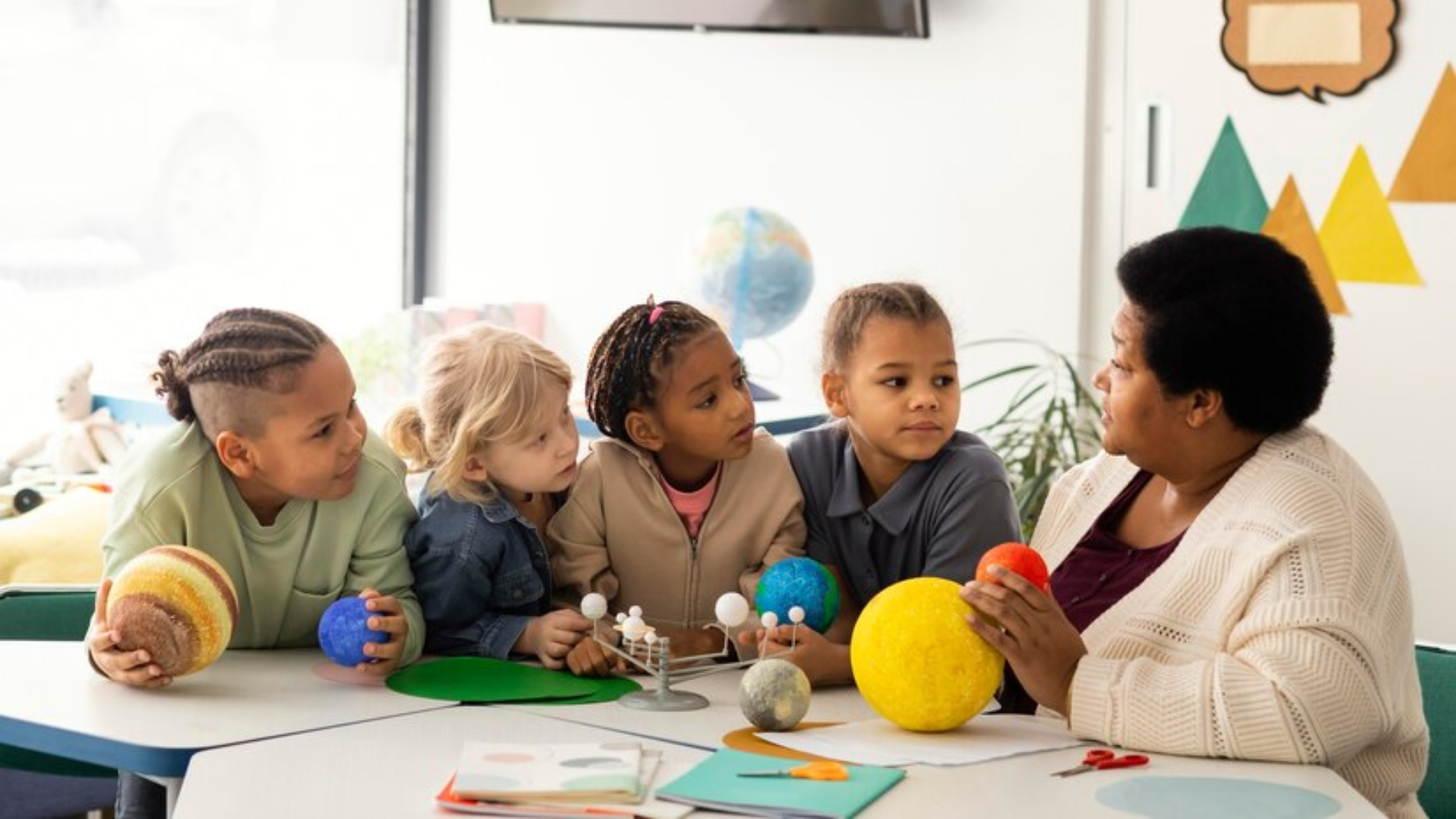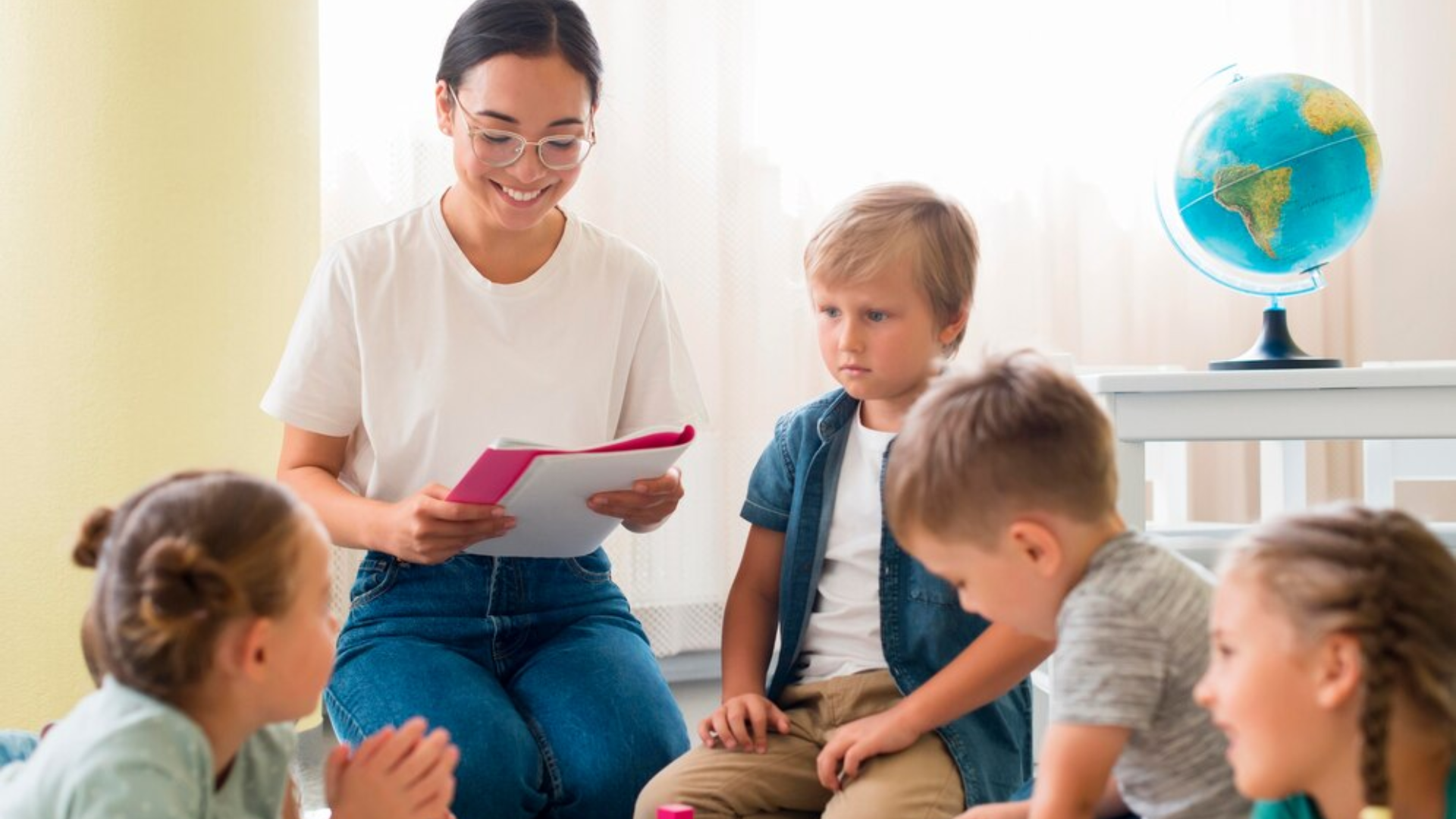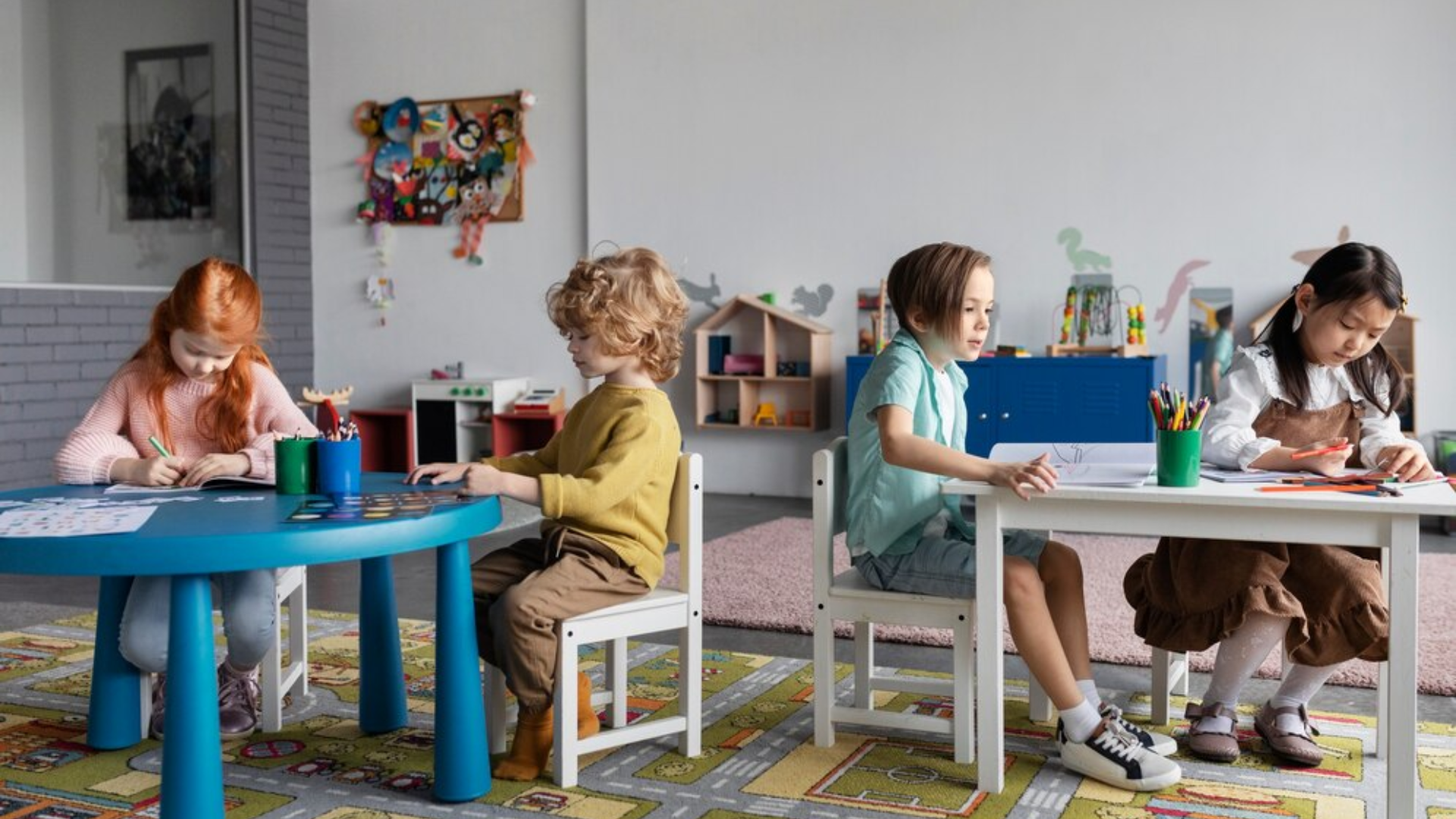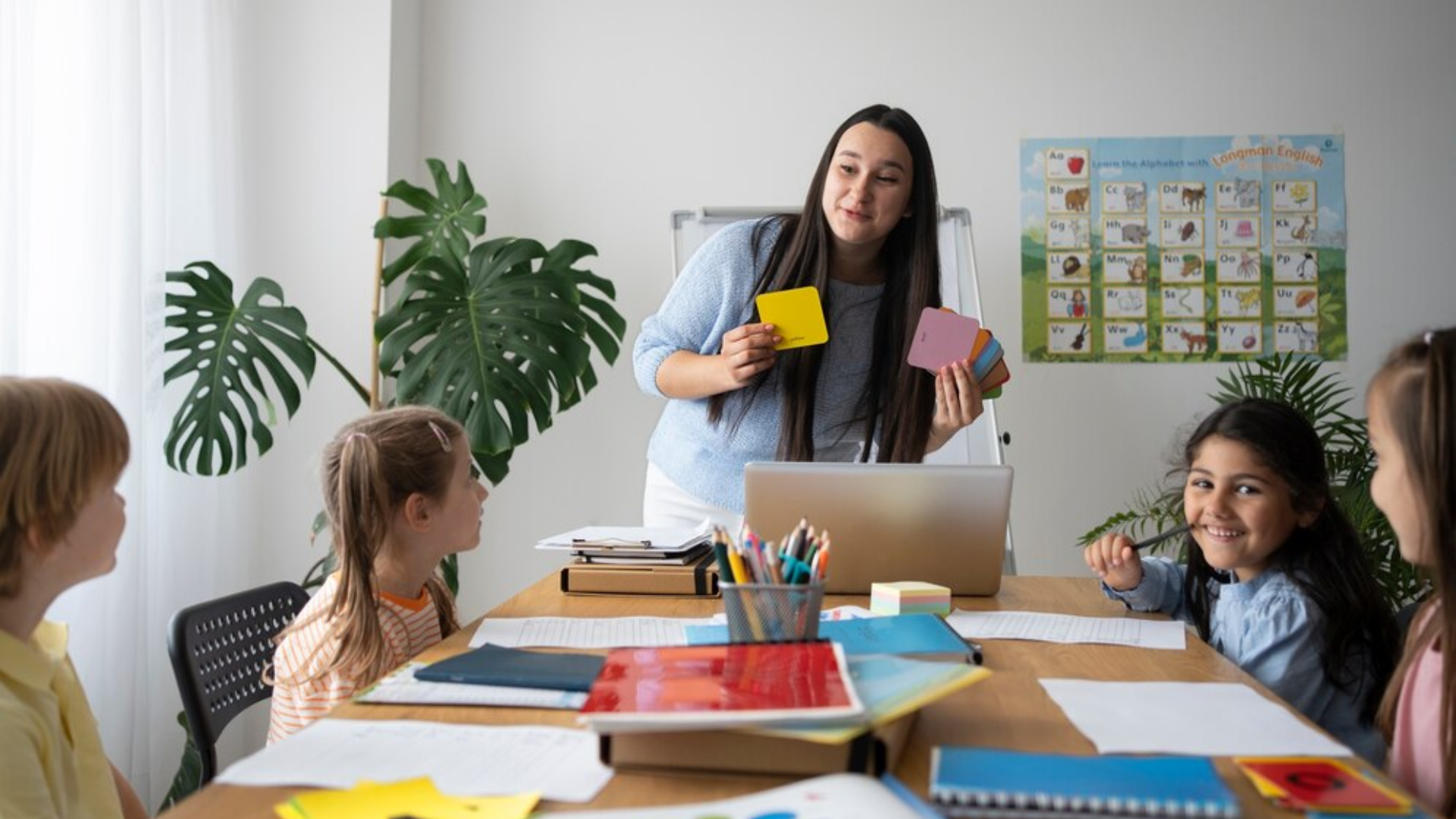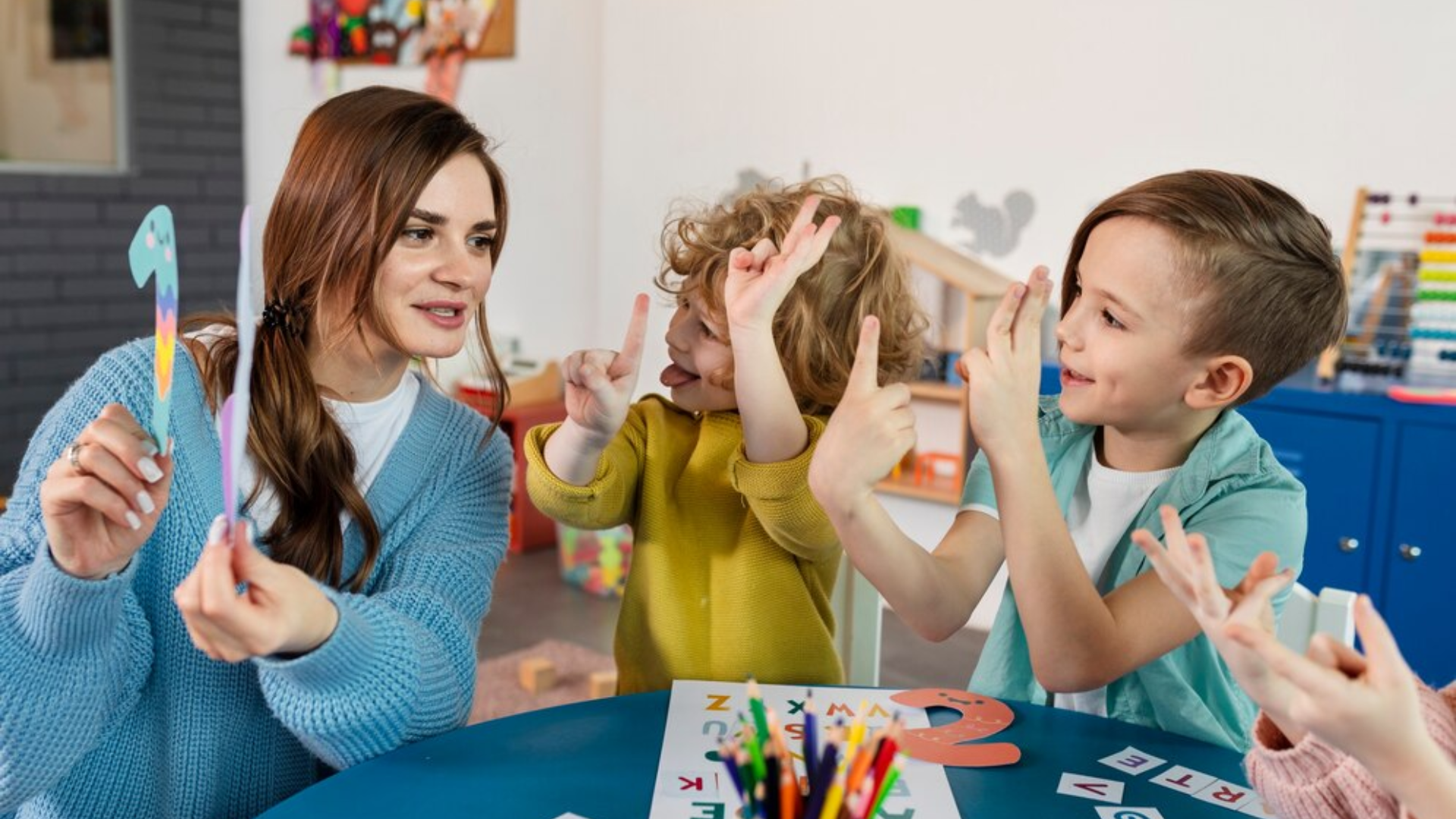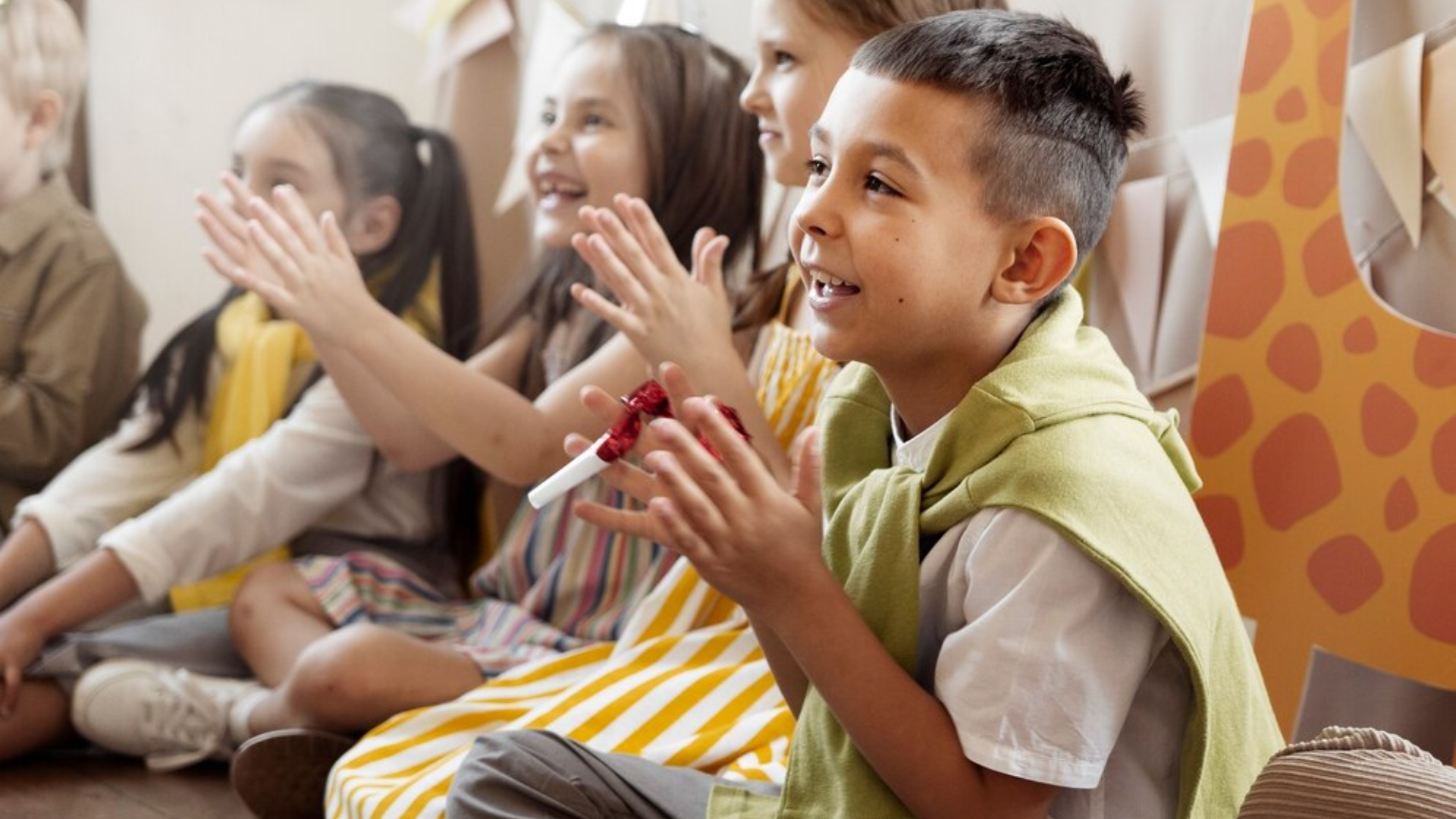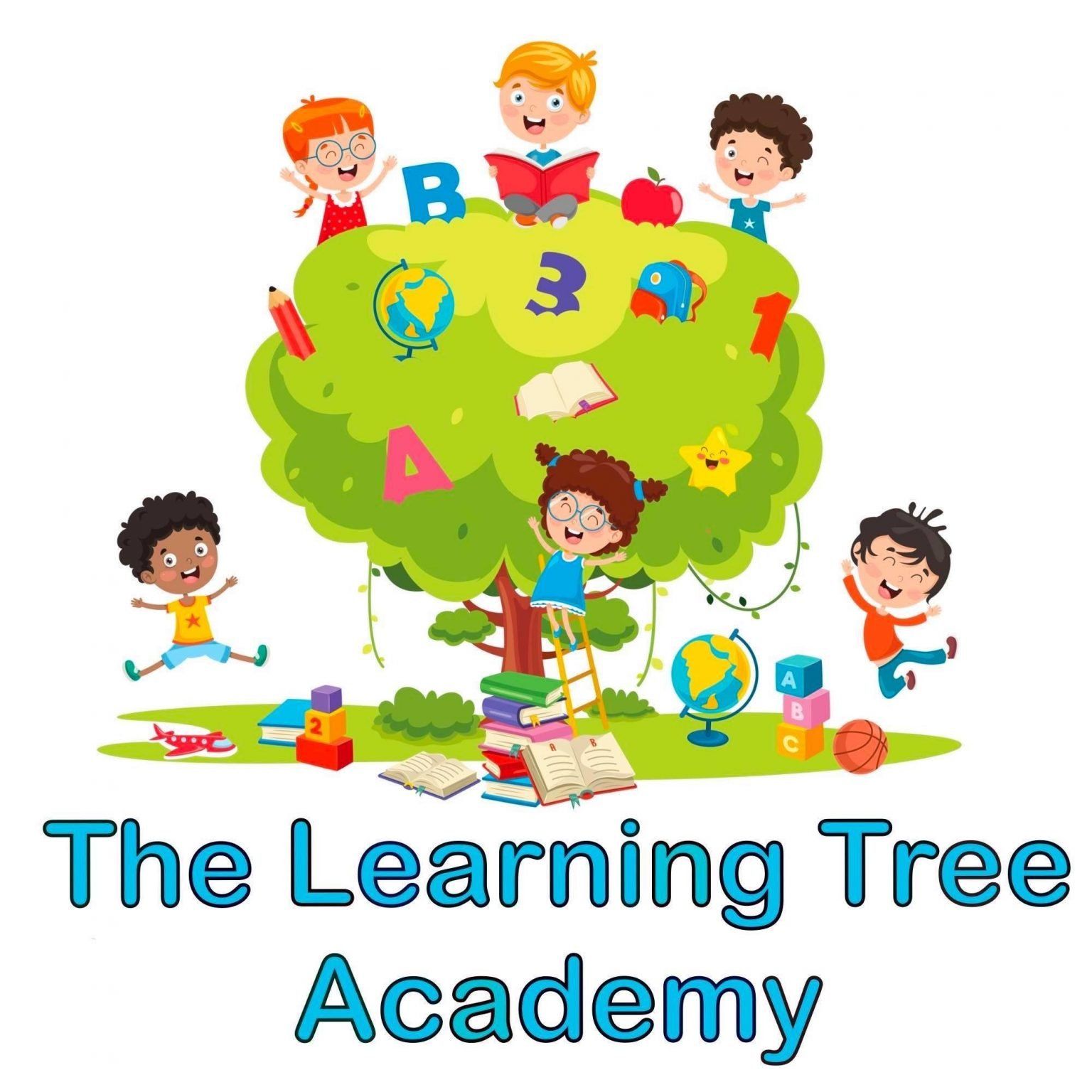How The Learning Tree Prepares Your Child for Social Success
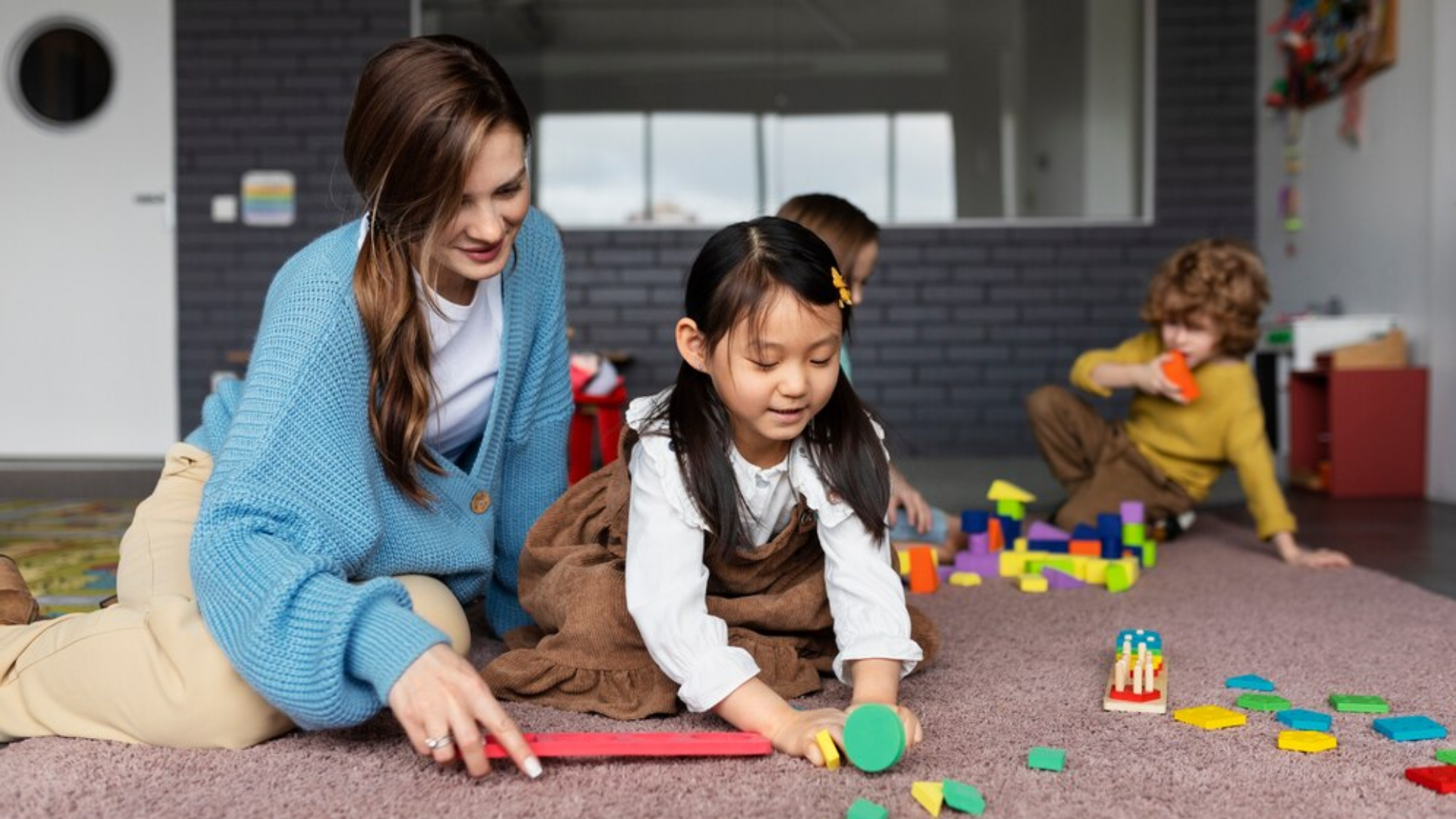
At The Learning Tree of Palm Bay, we believe that social skills are just as important as academic skills for a child’s overall development. The early years of life provide the foundation for how children interact with others, handle emotions, and build relationships. Preparing children for social success is a key part of our curriculum, as we understand that strong social skills are essential for navigating the world around them, both inside and outside of the classroom.
In this blog post, we’ll explore the ways in which The Learning Tree prepares children for social success, from fostering positive interactions to teaching essential emotional intelligence skills.
1. Encouraging Positive Peer Interactions
Why It Works:
The early years are a critical time for developing positive relationships with peers. Children begin to learn how to cooperate, share, communicate, and resolve conflicts—skills that are vital for future social success. In a supportive classroom environment, children can practice these skills on a daily basis, building the confidence they need to navigate social situations.
How It Works at The Learning Tree:
Our small class sizes and teacher-to-student ratio create an ideal environment for children to develop meaningful relationships with their peers. Whether it’s during group play, cooperative activities, or shared projects, children are encouraged to interact with each other in a respectful and positive way. Teachers guide children in understanding the importance of sharing, taking turns, and listening to others. By engaging in these activities, children learn how to navigate social interactions, build friendships, and understand the value of teamwork.
Learning Outcomes:
- Enhanced communication and cooperation with peers
- Development of positive, lasting friendships
- Stronger social confidence and skills
2. Teaching Emotional Intelligence
Why It Works:
Emotional intelligence (EQ) is the ability to recognize, understand, and manage one’s own emotions, as well as the emotions of others. Research has shown that children with high emotional intelligence tend to have better social relationships, higher academic achievement, and a greater ability to handle challenges. Teaching emotional intelligence in the early years helps children develop empathy, resilience, and a strong sense of self-awareness—traits that are essential for success in both social and academic settings.
How It Works at The Learning Tree:
At
The Learning Tree, emotional intelligence is woven into every aspect of our curriculum. Teachers model and reinforce how to recognize emotions in themselves and others, name those emotions, and respond appropriately. We encourage children to express their feelings in healthy ways, whether it’s through words, actions, or art. Our curriculum also includes discussions about empathy, kindness, and conflict resolution. By teaching these skills early, children gain the tools they need to navigate social situations, manage their feelings, and respond to others with care and understanding.
Learning Outcomes:
- Improved ability to understand and manage emotions
- Increased empathy and understanding of others
- Enhanced conflict resolution and problem-solving skills
3. Promoting Cooperative Play
Why It Works:
Cooperative play is a key way for children to develop social skills. When children work together on shared tasks or play in groups, they learn to communicate, negotiate, collaborate, and resolve conflicts. These social interactions are critical for teaching children how to interact respectfully and productively with others, setting the stage for positive relationships in the future.
How It Works at The Learning Tree:
Our curriculum emphasizes cooperative play as an essential part of the learning process. Whether children are building a block tower together, working on an art project, or participating in group games, they are learning how to work as a team. Teachers provide guidance and support, helping children navigate disagreements, encourage each other, and celebrate their successes together. These experiences help children understand the importance of collaboration, patience, and mutual respect in social interactions.
Learning Outcomes:
- Stronger teamwork and collaborative skills
- Greater ability to navigate group dynamics
- Development of respect for others’ ideas and feelings
4. Fostering Independence and Self-Confidence
Why It Works:
Social success is closely tied to self-confidence. Children who feel good about themselves and their abilities are more likely to take initiative in social situations, form new friendships, and handle challenges with resilience. Independence and self-confidence allow children to interact with others without fear of judgment, helping them engage in social opportunities with ease.
How It Works at The Learning Tree:
At
The Learning Tree, we create a supportive environment that fosters independence and encourages children to take pride in their accomplishments. Through age-appropriate tasks and responsibilities, such as choosing a center to work in, cleaning up after playtime, or making decisions about activities, children develop a sense of autonomy. Teachers provide positive reinforcement, acknowledging each child’s progress and efforts. This builds self-esteem and encourages children to take ownership of their actions, both socially and academically.
Learning Outcomes:
- Increased self-esteem and confidence
- Greater willingness to engage with others
- Enhanced decision-making skills and self-sufficiency
5. Modeling Positive Social Behavior
Why It Works:
Children learn by example, and teachers play a crucial role in modeling positive social behavior. When children see adults treating others with respect, kindness, and understanding, they are more likely to adopt these behaviors themselves. Teachers who model effective communication, conflict resolution, and cooperation create a safe and supportive atmosphere in which children can thrive socially.
How It Works at The Learning Tree:
Our teachers serve as role models for positive social interactions. Whether it’s resolving conflicts between children, engaging in conversation, or showing kindness and patience, our staff consistently demonstrates how to navigate social situations respectfully and effectively. Teachers also work closely with children to guide them in their interactions, helping them understand how to express themselves, communicate needs, and resolve conflicts in a healthy, constructive manner.
Learning Outcomes:
- Positive behavior modeling and reinforcement
- Enhanced ability to handle social challenges with respect
- Development of healthy, respectful relationships
6. Encouraging Respect for Diversity
Why It Works:
Social success also involves understanding and appreciating differences. In a diverse world, children who learn to respect and celebrate differences early on are more likely to form inclusive, harmonious relationships as they grow. Exposure to diversity—whether it’s different cultures, abilities, or family structures—helps children become more open-minded, tolerant, and accepting of others.
How It Works at The Learning Tree:
At
The Learning Tree, we embrace diversity and incorporate it into our curriculum in a meaningful way. Children are introduced to different cultures, traditions, and experiences through books, music, and activities that reflect the world around them. Teachers encourage children to respect each other’s differences and celebrate the unique qualities that each child brings to the classroom. This promotes an inclusive environment where every child feels valued and accepted, fostering a sense of belonging.
Learning Outcomes:
- Greater acceptance and respect for differences
- Development of inclusive behaviors and attitudes
- Increased empathy and understanding of diverse perspectives
At The Learning Tree, we understand that
small class sizes allow for more individualized attention, which is essential in fostering a child's
creativity and exploration, creating an environment where each child can thrive through hands-on learning and imaginative play.
Conclusion: Preparing Children for a Lifetime of Social Success
At The Learning Tree of Palm Bay, we are committed to preparing children for social success by providing them with the tools and experiences they need to build positive relationships, navigate social challenges, and develop emotional intelligence. By fostering cooperation, independence, empathy, and respect, we help children develop the social skills they need to thrive both inside and outside the classroom.
Through a curriculum that emphasizes social interaction, emotional development, and positive role modeling, we create an environment where children feel confident, respected, and prepared to face the social challenges of the future. If you’re looking for a preschool that prepares your child for social success, The Learning Tree is here to support your child every step of the way.
